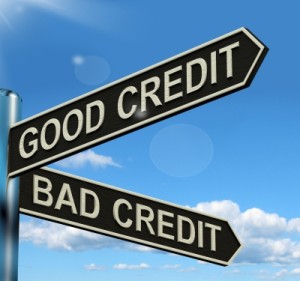There are essentially two types of Centrelink loans available and multiple options within these two…
Credit and What It Means to You
 You can hardly turn the television or radio on without hearing something about the importance of credit. A news item might offer tips on improving your credit. A commercial on the television might talk about fixing your credit. And the voice on the radio says that you need to get rid of your credit. What is everybody talking about?
You can hardly turn the television or radio on without hearing something about the importance of credit. A news item might offer tips on improving your credit. A commercial on the television might talk about fixing your credit. And the voice on the radio says that you need to get rid of your credit. What is everybody talking about?
When you hear the word “credit,” the speaker is usually referring to your history of borrowing money and repaying it. Do you have a credit card account? Have you purchased a car and paid for it with a series of payments? If you’ve purchased a house, you probably took out a loan, or mortgage, to pay for it. These are the types of situations that are considered when analysing your credit.
You’ve also probably heard people assign the descriptors “good” or “bad” to credit. A person who has bad credit typically doesn’t repay the money they borrowed in the time that they agreed to. Perhaps they had made a few payments after their due dates. Or maybe they failed to repay one of their loans all together. A person with bad credit often finds it difficult to make new purchases on favorable payment plans if any.
On the flip-side, a person with good credit makes all of their payments on or before their due dates. They don’t have any accounts that have gone unpaid, and they don’t have any trouble finding new companies that are willing to let them make purchases with payment plans.
You can quickly tell that it is better to have good credit than to have bad credit. Having good credit makes it easier for you to open new credit accounts as they are needed. But do you realise how many other things your credit history affects? Here are a few other areas of your life that are at the mercy of your credit rating, outside of getting approved for different types of loans:
Job Searching – Many employers have begun the practice of analyzing at a potential employee’s credit history before making a decision about hiring him. These employers worry that employees who can’t handle their credit well won’t be able to handle the company’s resources, either.
Purchasing Insurance – Are you hoping to save money on your homeowners or auto insurance? Some insurance companies offer discounts to their customers who have a good credit rating.
Renting a Home – A potential landlord will certainly look at an applicant’s credit before deciding whether or not to rent to him. Landlords want to know that their tenants have a history of making their payments on time since the landlords will be collecting monthly rent payments from the applicant. You may find yourself losing out on a great house or apartment if your credit is bad.
Now that you understand what credit is and how it affects your life, you can begin to get a handle on yours. If your credit is less than stellar, you can begin to fix it by making it a point to make each of your payments on time. Be careful not to open any new accounts that you can’t afford. As you make your payments and pay off your debts, your credit will improve and you’ll be able to enjoy the benefits of good credit. *update – Learn about the recent credit law changes here.
Image courtesy of Stuart Miles / FreeDigitalPhotos.net



Comments (0)